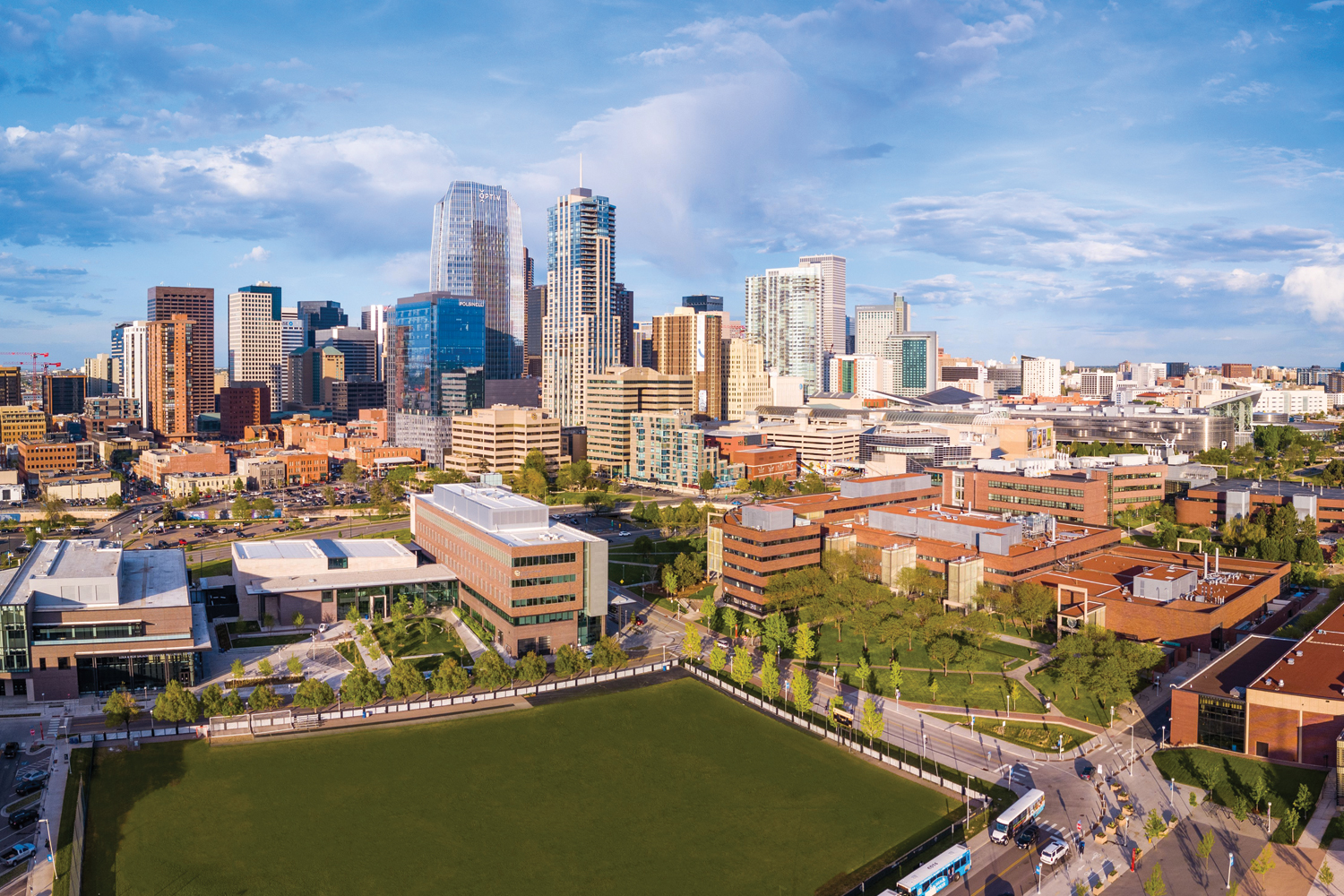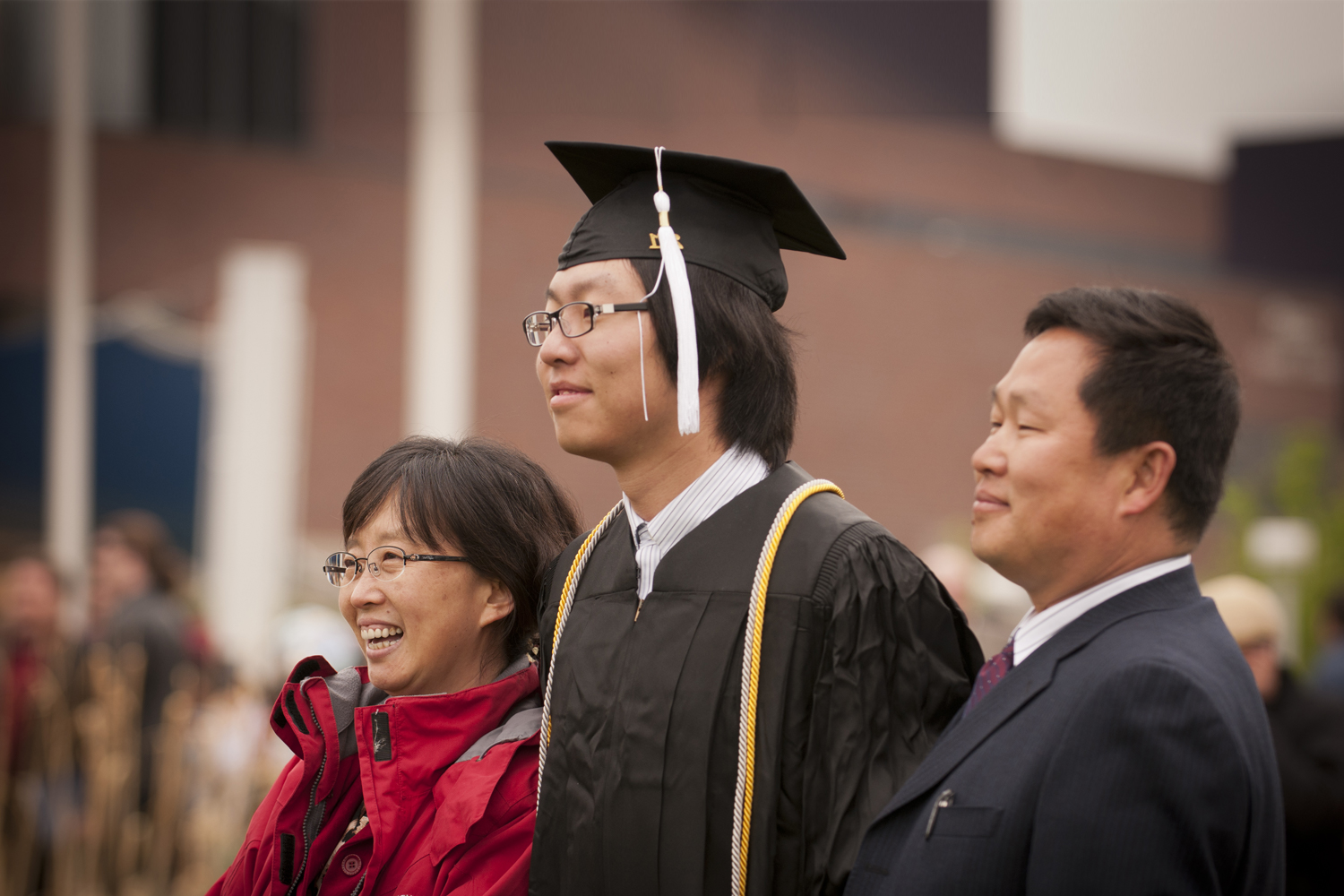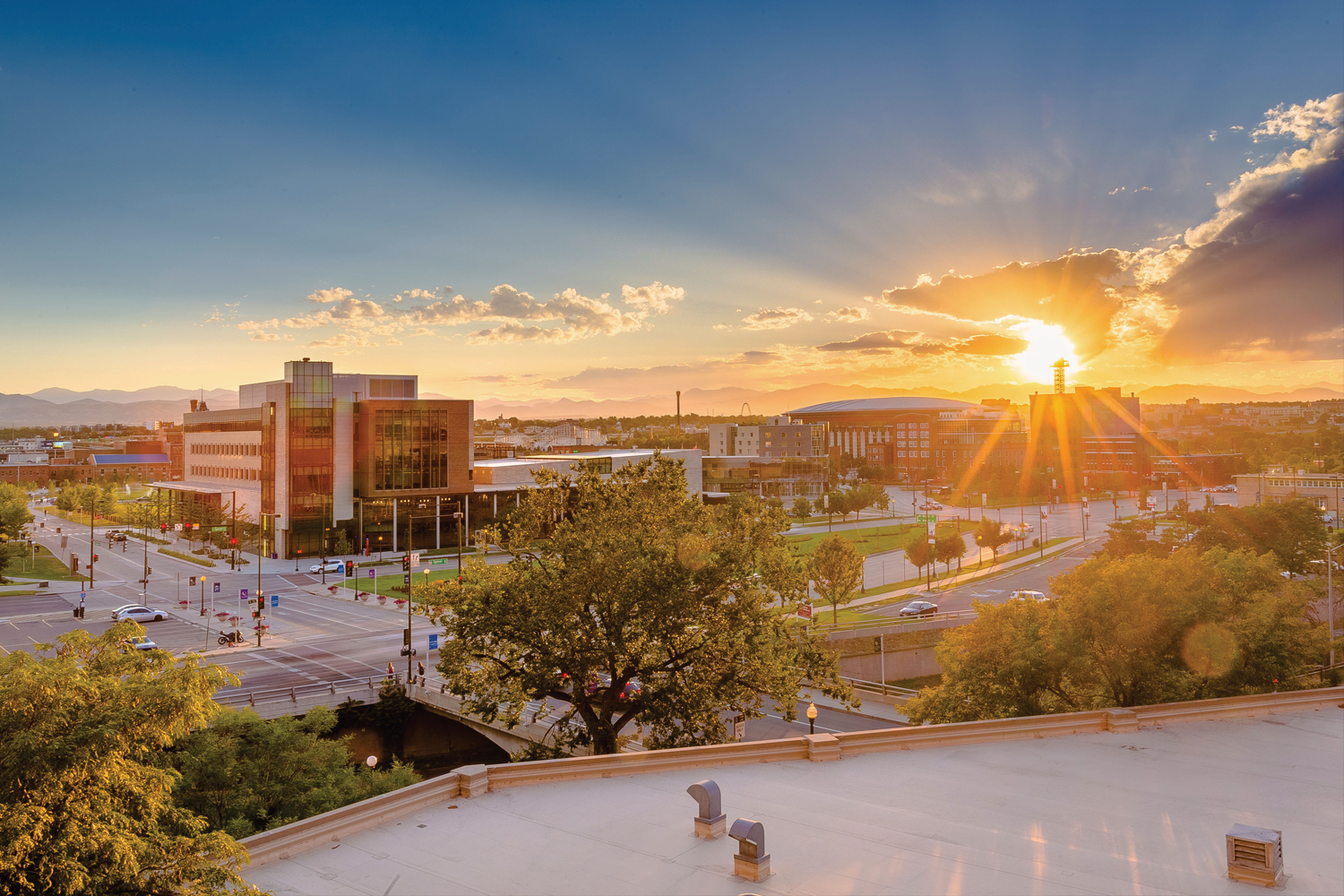Paving the Way: PhD/Teacher Joins in Research Aimed At Improving Colorado’s Highways
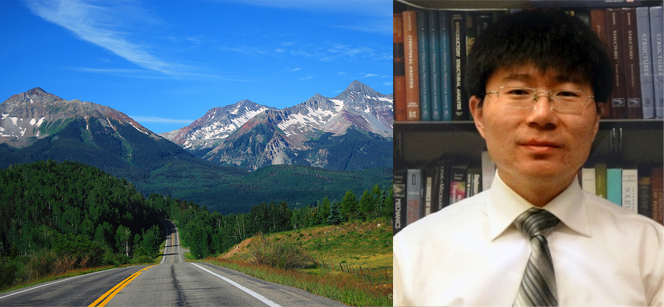
As an international student earning his PhD in civil engineering at the University of Colorado Denver, Rui Liu remembers encountering many difficulties in 2007, mainly due to language barriers and having to acclimate to a different culture. He credits his mentors in the College of Engineering and Applied Science and the staff at International Student and Scholar Services (ISSS), Office of International Affairs, with helping him to overcome those obstacles quickly.
“Whenever I had questions regarding my immigration status, an OPT (optional practical training) application, an H1B visa petition, or other issues, ISSS always provided me with perfect solutions,” said Liu.
Faculty in the Department of Civil Engineering also gave him “unlimited support and encouragement”. Along with his studies, he was able to assist as an intern for the City and County of Denver, participating in inspections aimed at improving pavement and bridges in Denver.
Liu and his peers also sharpened their research efforts on high performance “green” concrete. They evaluated the re-use potential of post-mercury control fly ash in concrete, and proposed a method to optimize the cement and fly ash content. For the concrete industry, these findings point to ways to create more sustainable mixtures of concrete, which can reduce greenhouse gas emissions and conserve costs.
When Liu graduated, he spent two years conducting postdoctoral research. He participated in several projects funded by the Colorado Department of Transportation (CDOT) and the City and County of Denver.
“My co-workers and I developed performance-based concrete criteria for CDOT. Ultimately, the performance specifications are expected to provide better assurance of durable in-place concrete,” Liu explained.
He also worked with CDOT teams to investigate the field performance of thin-bonded overlay on asphalt and concrete surfaces.
Recently, advancements in thin-bonded overlays have produced materials that promote an improved wearing surface and contain anti-icing properties. These innovative materials can replace more traditional overlays such as asphalt, portland cement (the most common type of cement in general use around the world), and non-reinforced polymer cement concrete. The hope is that the products examined in this study will prove successful in providing more durable, skid-resistant wearing surfaces; this will prevent the formation of snow or ice on bridge surfaces. Following this, CDOT will be able to recommend these products for future bridge construction and rehabilitation projects.
The third project Liu worked on was the examination of the re-use potential of tire chips as coarse aggregate in paving concrete mixtures. Colorado has approximately 45 million used tires, roughly one-third of the tires stockpiled in the country; this number is rising every year. Recycled tire chips are an economical alternative to more expensive virgin coarse aggregate as a supplement or replacement material.
In spring 2009, the Department of Civil Engineering asked Liu to teach three undergraduate level courses (Statics, Mechanics of Materials, and Reinforced Concrete Design) and three graduate level courses (Intermediate Mechanics of Materials, Matrix Structural Analysis, and Introduction to Finite Analysis).
“This teaching experience has challenged me to think of creative and effective means of teaching students. My goals in teaching are to inspire students’ intellectual curiosity, make them think about and question the subject at hand, and transform them with new knowledge and acknowledgement of them as individuals,” said Liu. He added, “I teach because I do love every minute of this job. Working with the students from everywhere of the world provides me with the most stimulating intellectual environment I have ever met. The feeling of having done my job well is priceless.”
From student to research postdoc to teacher, Liu has enjoyed the full spectrum of possibilities that are available for bright, determined individuals at the University of Colorado Denver.
Learn More
The International Student and Scholar Services (ISSS) department in the Office of International Affairs has helped more than 1,000 international students and 500 international scholars from around the world to become participants in programs and research at the University of Colorado Denver. For more information, visit online: international.ucdenver.edu/ISSS
The College of Engineering and Applied Science, University of Colorado Denver, offers a range of undergraduate to graduate degree programs in the departments of bioengineering, and civil, computer science, electrical, and mechanical engineering. Learn more at: ucdenver.edu/engineering
UPDATES
International College Beijing
-
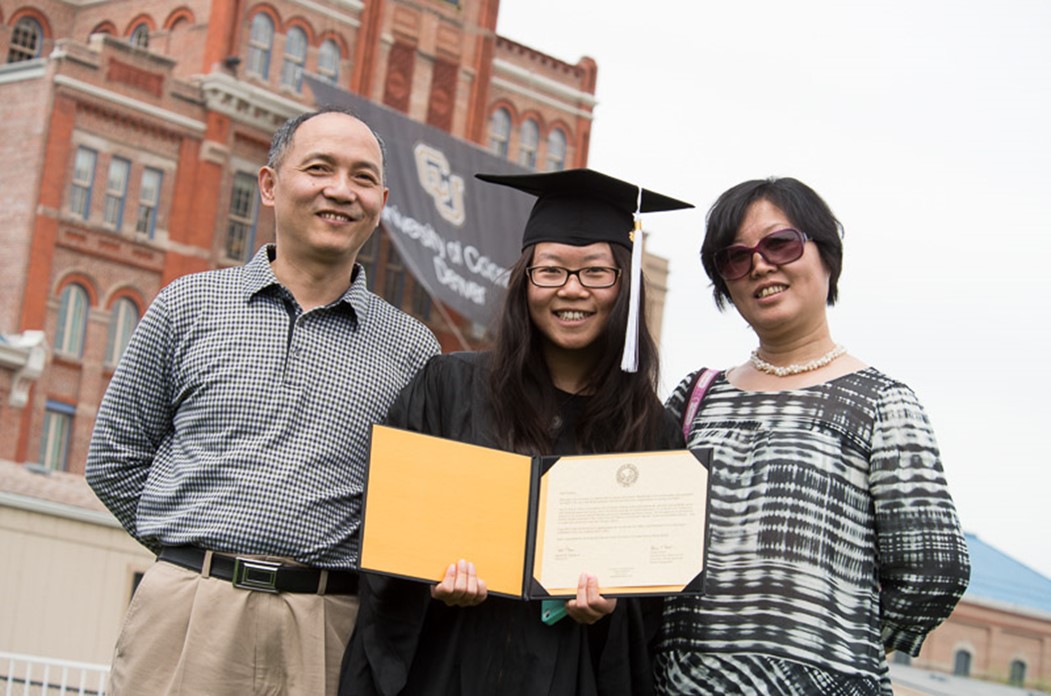
ICB Graduate Fellowship Provides Support
Oct 4, 2021The scholarship, which was launched eight years ago, provides $5,000 annually to an outstanding ICB student who chooses to pursue graduate studies at the University of Colorado Denver. A wide range of graduate programs are available, including applied mathematics, accounting, finance, risk management, public affairs, communications, economics, business, biostatistics, clinical science, and many other degree programs.Full story -

Personalized Attention
Sep 21, 2021Questions were answered, academic guidance was provided, and helpful facts were shared as CU Denver faculty and advisors met with ICB students who had recently arrived in Denver. The students gained a better understanding of certificate program options such as health communication and mediation. They also found out more about communication pathways , including global and intercultural communication.Full story
